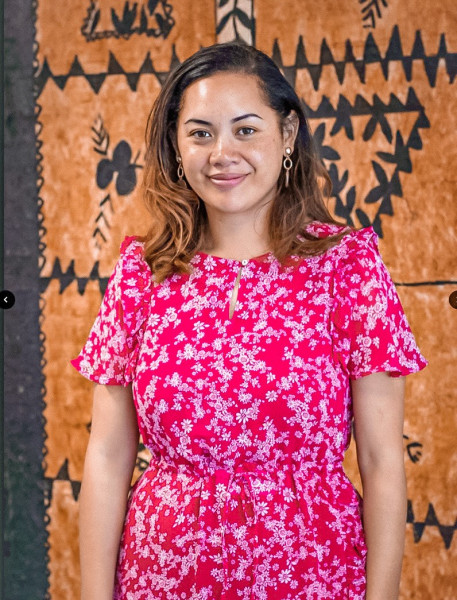Understanding the Pacific contribution to the economy
Understanding the Pacific contribution to the economy

As part of the Pacific Economy Research Project team, Dr Seini Taufa’s role is to ensure the voices of Pacific people are echoed in the report, and research learnings.
Currently the Senior Pacific Advisor for the Growing up in New Zealand Longitudinal Study (based at the University of Auckland) and Research Lead for the Pacific-owned and led Moana Research, Dr Seini Taufa lives a life of serving Pacific Aotearoa.
In addition, Dr Seini has taken on the role of co-Principal Researcher for the Pacific Economy Research Project.
The project, facilitated by the Ministry for Pacific Peoples (MPP) is focused on better understanding the Pacific informal economy, with a particular focus on exploring the type of unpaid productive work and volunteering that contribute to Pacific wellbeing and wealth development in New Zealand.
Working alongside MPP’s Dr Sydney Livingstone and the rest of the team, Dr Seini has been leading the qualitative part of the project.
“We've been privileged through this work to hear the perspectives of the nine largest Pacific groups in New Zealand through our Focus Group Talanoa and through in-depth interviews.
“My role is to make sure the voices of our people are echoed in the report we produce.”
The Researcher’s interest in the Pacific informal economy was piqued a few years ago, when she was asked to write an opinion piece for the Ministry for Women based on her views of unpaid work from the perspective of a Tongan woman.
“I started reading various definitions of volunteering and unpaid work and I realised how broad the definitions were and things that fall under the definition of unpaid work, like looking after a loved one who is elderly, ill, or has a disability, babysitting, or setting up chairs at church for youth night - those are things we naturally just do.”
Pacific peoples’ contribution to New Zealand society and wellbeing in general through unpaid work activities is immense, but undercounted, she adds.
“Because it is undercounted, it is undervalued.
“I started writing more on the topic and MPP picked up on it and I was approached to come on board and be part of this amazing piece of work.”
While constantly learning in her line of work, Dr Seini says one of the key learnings she has taken from this project is to not assume our interpretations or understanding of unpaid work or volunteering are the same across the nine Pacific groups represented in this project.
“This is another reason why moving away from Pan-Pacific approaches is needed.
“This project has also cemented what many of us already know - the solutions and the answers are with the community, yet it is our job to make sure their voices are heard in everything we do.”
To collect data for the project, the team is asking Pacific people to take part in a survey - the largest survey on the topic of unpaid work in New Zealand to be undertaken - after which information will be collated.
It is Dr Seini’s hope the outcomes from the research will highlight the contribution Pacific people make to New Zealand society through unpaid work by drawing on the narratives captured across New Zealand and insights from interviews and the survey.
“The research will help us to better understand what unpaid productive work and volunteering mean to Pacific people in Aotearoa New Zealand; and help inform policy by drawing on its contribution to financial capital, social capital, cultural capital, and our holistic wellbeing.”
She adds that New Zealanders often hear the Prime Minister and ministers speak about evidence-based information.
“Decisions made at that national level draw on evidence.
“By taking part in this survey your voice will contribute to generating evidence that will inform policy and help our decision-makers advocate on your behalf and on behalf of your communities.”
